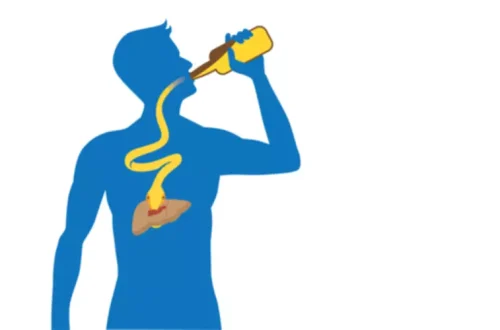
It may present with the same narcissistic traits and symptoms as other narcissism types, only that some of these signs may be less intense or not openly displayed. Narcissistic personality disorder (NPD), on the other hand, is a formal mental health condition. Being in a relationship with a covert narcissist can feel frustrating and overwhelming. There are times when it can be difficult to create distance between you and that person, such as with a family member or co-worker. When dealing with a narcissist, whether covert or overt, their manipulative behavior can feel very personal. The lack of regard, sense of entitlement, patterns of manipulation, and deceptive behaviors can feel very personal when on the receiving end.
Behavioral Patterns of Communal Narcissists
- If someone has AUD as well as a personality disorder, it’s recommended that both are treated at the same time to improve their chances of recovery.
- People with covert narcissism also rely on others to build up their self-esteem.
- If your colleagues get together for lunch, stay at your desk or go out alone to eat instead.
- The enabler parent of a covert narcissist is a key figure in perpetuating the narcissistic behavior of the other parent.
- You can take control of your own life and decide what you’re willing to tolerate and not tolerate.
- Consider what is important to you, what your values are, and work to create boundaries to support them.
So, although they may appear kinder and less obnoxious than their extroverted counterpart, they are not emotionally accessible or responsive either. The reality for both the overt and covert narcissist is that they have a fragile sense of self. This free narcissistic personality test may be helpful in assessing whether or not you or someone you know display signs of narcissism. Researcher and author Craig Malkin, PhD, suggests that the term “covert” can be misleading. In his work, he states that the term covert is often used to suggest that the covert narcissist is sneaky or that their striving for importance is not as significant as an overt (more extroverted) narcissist. In fact, he reports, the traits of the overt narcissist and the covert narcissist are the same.
Types of Narcissism

For example, a covert narcissist may have a partner who’s on the verge of a nervous breakdown from seeing to their every need on a constant basis, and who is in desperate need of a vacation to re-energize and regroup. This is because covert narcissism manifests differently from overt narcissism, and thus may not be as easy to spot. In truth, we all have various kinds of insecurities, but we don’t have to let those insecurities control the way we think about ourselves and the world around us. If you feel lost about who you are as a person and where you are in life right now, there’s a way to get back on the path toward feeling more like your true self. Those with unstable self-esteem may turn to addictive behaviors for validation and to cope with negative emotions. If the person does not want to enter treatment or change, there may not be hope for healing.
Overt vs. covert narcissists
People with vulnerable narcissism tend to show avoidant, defensive, or hypersensitive behaviors, and they often experience feelings of rage at a perceived lack of esteem or respect. People with grandiose narcissism tend to have very high self-esteem, behave in a dominant way, and overestimate their own capabilities. Educating oneself about covert narcissism and the tactics they employ is key in recognizing and responding to their manipulative behaviors. Covert narcissistic manipulation often distorts children’s memories and views, making it challenging for the child to differentiate between reality and manipulation. To combat this manipulation, seeking support from friends, therapists, and support groups is crucial.

However, narcissism exists on a spectrum and there are different levels of narcissistic behavior. To be diagnosed with NPD, a person must show narcissistic traits in unhealthy (pathological) ways that interfere with their daily functioning and how they relate to other people. Overt narcissism—defined by a sense of grandiosity, a continuous desire for admiration, arrogance, and fantasies of unlimited power and success—is the most classic type. Other types of narcissism have been described including covert, antagonistic, communal, malignant, maladaptive, and adaptive.
- And those feeling of support and admiration, however sincere or surface-level, may feel like a boon to your self-esteem.
- Where the more overt, extroverted narcissist will be obvious in their elevated sense of self and their arrogance when interacting with others, the covert narcissist may be less obvious.
- This short-circuits them because you’ve called them out on their failsafe behavior before they’ve had a chance to execute it.
- A 2018 meta-analysis looked at the results of 62 studies and found that grandiose narcissism has a moderate association with increased social network use.
- A 2018 study found that people with personality disorders were more likely to have AUD at some point in their lives.

People with covert narcissism have the same self-important and attention-seeking instincts as other narcissists. However, covert narcissists express these narcissistic traits differently than most people would expect. For instance, a person with typical narcissistic tendencies might boast openly about their achievements. Meanwhile, a covert narcissist may subtly fish for compliments by downplaying their accomplishments. It is typical for people to display occasional narcissistic traits, but a pattern of narcissism could be part of narcissistic personality disorder (NPD), a mental health condition. In understanding covert narcissists, their seemingly normal exterior often masks manipulative tendencies and a lack of empathy towards others.

As a result, they may have learned to pander to their primary abuser by whatever means they found worked. This may refer to emotional, physical, psychological, or neglectful forms of abuse. “That can be really hard if it’s someone who’s really important to you, https://ecosoberhouse.com/ but if it becomes emotionally or physically abusive, you have to protect yourself,” she adds. Setting up healthy boundaries about what you can and can’t put up with is also important because your needs have to be met just as much as other people around you.

Narcissism vs. narcissistic personality disorder
- Recognizing these differences can help in setting boundaries and navigating relationships effectively.
- A vulnerable narcissist’s behavior has everything to do with them and how they experience the world, and very little to do with you.
- If done with the purpose of manipulating or hurting you, passive aggression can be considered a type of covert abuse, particularly if done persistently.
- Narcissism may leave people more prone to problematic substance use, including alcohol use disorder, as well as other forms of addiction, such as sex addiction and social media addiction.
Exploring the intricate connection between covert narcissism and addiction unveils a complex web of behaviors and coping mechanisms intertwined in individuals who mask deep-seated insecurities and fears with manipulative tendencies. When looking for signs of covert covert narcissism and alcoholism narcissism in addiction, several key indicators emerge, shedding light on the underlying issues driving the individual’s behavior. The table below outlines these signs, providing insight into the intersection of covert narcissism and addictive tendencies.
If there’s any change or upheaval in the dynamic, they’ll do everything within their power to get things back to what they consider normal. Someone whose work colleague earned a promotion may insinuate that the person earned it by sleeping with the boss, for example. A child learns that they would have to behave in a certain manner to get their needs met or avoid a torrent of abuse.
